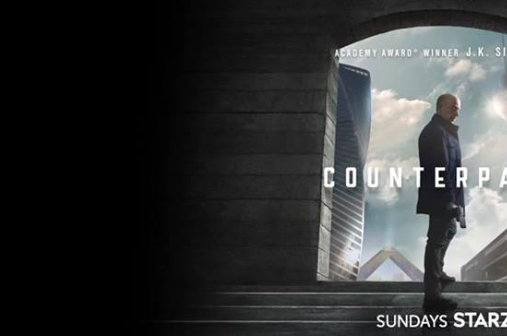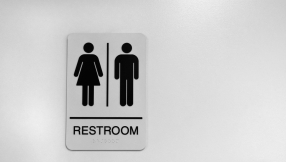
Start writing online about 'fake religions' and the time between posting the article and an atheist troll gleefully commenting it's an oxymoron can be measured in milliseconds. Look, we know what you think; remember vinyl records and what happened when they got scratched? That's you.
Fake religions, then. The new Star Wars film, The Force Awakens (can't wait, really excited about this one) has sparked a renewed interest in Jediism. According to the Guardian, people are signing up in droves and the Church now boasts more than 250,000 followers.
Jediism started in 2001, when people started writing "Jedi" as their answer to the religion classification on census forms. Most of them were joking, but it's become a bit of a thing. Daniel Jones founded the Jedi Church in 2008; he was ejected the following year from a Tesco supermarket in Bangor, North Wales, for refusing to remove his hood on a religious basis.

Then there's the Church of the Flying Spaghetti Monster. It's been around since 2005, though it claims to have existed in secrecy for hundreds of years. Its members wear colanders on their heads and in New Zealand the first "Pastafarian" minister has been licensed to perform marriages.
According to its website, it's not a joke: "Elements of our religion are sometimes described as satire and there are many members who do not literally believe our scripture, but this isn't unusual in religion. A lot of Christians don't believe the Bible is literally true – but that doesn't mean they aren't True Christians." It also says that Pastafarians are "not anti-religion". "This is NOT an atheists club. Anyone and everyone is welcome to join our church including current members of other religions."
And what about Iceland? There, people are flocking to an ancient Sumerian faith called Zuism. More than 3,000 people have signed up to it so far. There is not much Sumerian about it; it's a protest movement against Iceland's policy on the state funding of religion. Icelanders pay taxes to the religion of their choice, and Zuism promises to refund them to its members.
But what's the difference between these religions and the ones we automatically think of as the "real" ones? Because there are obvious differences. Setting aside just for a moment questions like, 'Which one's right?', faiths like Christianity, Islam and Hinduism arose because people really believed in them, sometimes to the point of being willing to die for them – and, indeed, to kill for them. It's hard to imagine anyone going to the stake for the Flying Spaghetti Monster.
But that doesn't really go to the heart of the question. The Concise Oxford Dictionary defines religion as: 1. Particular system of faith and worship, 2. Human recognition of a superhuman controlling power and especially of a personal God or gods, and 3. Thing that one is devoted to or is bound to do (like "make a religion of football", it suggests).
There are serious questions about the first two definitions in relation to "fake" religions, but that doesn't mean they fail the test completely. Some Jedis probably really do believe there's a supernatural force that permeates all living things and that can be drawn on by trained adepts; aside from its Star Wars costume, that's fairly standard New Age-type thinking. And Pastafarians admit that there are "elements" of satire in their religion, but that doesn't mean that adherents are just mocking religion.
For most adherents, though it's just a joke. But what's interesting is how in this age which is supposed to be, in the West at least, post-religious, and in which faiths of every sort are struggling, so many people turn to religion – even a religion that looks pretty spurious – to say something about who they are and what they believe.
The Christian response to that shouldn't be to mock them or resent them, as it all too often is. (The Pastafarian website has a section entitled "Hate Mail"; one entry says, "I pray for people like you each and every night. I pray that God will hit you over the head with some sense and knock you to your knees.") Instead it should be to enjoy the joke and engage with the ideas behind it – because there are plenty of them there.
Do-it-yourself religion says this:
1. All religions are equally foolish. While it's ungracious and counter-productive to compare and contrast different faiths, we can at least try to present our own as wisely and appealingly as possible.
2. The world is fundamentally random and one idea is as good as another. That's a fundamentally hopeless, nihilistic view that needs to be challenged; some paths make life richer, fuller and better, while others don't.
3. Being nice to people is all that matters. Jedis and Pastafarians are nice people, and in a world that sometimes seems to be full of nasty people that's not a bad place to start. But what sets real faith apart from the satirical variety is that it explains things; it helps you understand why things are as they are and how you can change them.
4. You can create your own reality. The creators of these religions have done that, with a knowing grin. They don't think there's any truth "out there" – how you choose to live is your business. Christians want to say that there's a God who's independent of how we feel about his existence.
In the end, maybe what marks out do-it-yourself religion from real faith is this: real faith makes you do things that you don't want to do. It's morally and spiritually demanding. It means that you are constantly reminded that you're human and therefore mortal, and that you're accountable to a greater 'someone' than you – who probably, with respect, isn't a Flying Spaghetti Monster.
Follow @RevMarkWoods on Twitter.

















